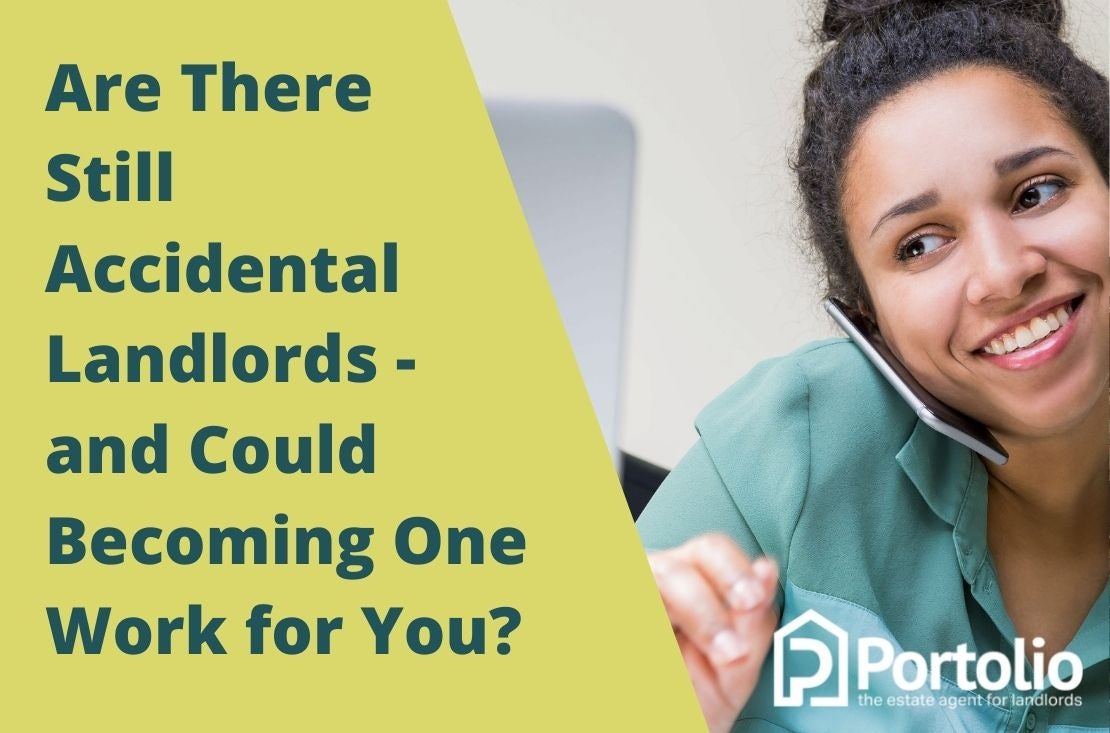It’s a question we get asked sometimes: How do you become a landlord by accident?
Well, you’d be surprised.
The term ‘accidental landlord’ or ‘reluctant landlord’ typically refers to those who bought their home pre-2008 and, following the infamous financial crash that year, found they were unable to sell, and decided to rent out the property instead.
Of course, there are ways to acquire a property without intending to become a landlord in the process, such as inheritance, or couples moving in together, but the events of recent years have created new reasons to become a landlord.
Let’s take a look at some of them.
The Covid-19 Pandemic
Following the initial lockdown period at the start of the pandemic, it was physically impossible to put your house on the market. Viewings were cancelled and house sales stalled as most of the population was forced to stay at home.
It was, however, possible to rent out your property and, indeed, demand soared as people sought properties with garden space and key workers took precedence.
At the time of writing this, we’re almost two years into the pandemic and the increased house prices driven by the desire for gardens and more space are still very much in evidence.
Time will tell if those who became reluctant landlords due to the Covid-19 pandemic will remain so, but demand for rental properties remains strong with overall healthy yields for investors.

The Cladding Crisis
In the wake of the Grenfell tragedy in 2017, legislation was introduced in the form of the EWS1 (External Wall Survey) to provide extra assurance to lenders of the safety of cladded buildings.
However, despite the EWS1 not being a statutory requirement, the information formed part of the valuation and the value of the property diminished to zero. This meant that many people were left with properties they couldn’t sell, as no lenders would touch them.
An absence of an EWS1 form also meant that lenders just didn’t want to know. Since the cost of a survey was between £700 – £1000 this meant that it was out of reach of many homeowners trying to sell their properties.
Faced with paying a huge amount of money to be told their property was potentially worthless, you can understand why many cash-strapped property owners preferred to save their money.
So what are you supposed to do when you want to move house but can’t sell? Fortunately there were still options available, and one of them was to rent out the property, which was permissible.
So, although it wasn’t planned, these former homeowners found themselves becoming accidental landlords. Not ideal by any means but at least they could now have some income from their tenants.
The oil price crash
Interestingly, Aberdeen was one of the few cities to emerge from the financial crisis of 2008 relatively unscathed.
However, at the start of 2015 Aberdeen bore the brunt of the oil price crash, causing many to become accidental landlords as they saw the value of their properties dip.
As an affluent city, it was a natural choice to become a buy-to-let landlord while the market recovered, as the lack of affordable properties created a greater demand in the rental market.
When do you stop being an accidental landlord?
It’s an interesting question. Once you’ve decided to become an accidental landlord, are you still an accidental landlord say, two or three years on?
Obviously everyone’s situation is different but my take on it is that you stop being an accidental landlord when you decide you actually like it, and that it works for you financially.
Many of our clients only have one or two properties, and although we’d have to ask them to make sure, if they’ve actively chosen to be landlords even with the disincentive of the Additional Dwelling Supplement, we can assume that it’s a workable situation.
Certainly in the wake of the 2008 financial crash, many found that they actually enjoyed being landlords, so much so that when the market improved they decided to continue with the status quo.
Advice from the property pros
If you’re having difficulty selling your property, it may surprise you to learn that becoming a landlord might be a workable option.
Consider this; for a property valued at around £50,000, placing a tenant and charging around £450 per month, you may find yourself with a yield of around 11% per annum.
Moreover, if you put in a tenant and charge a reasonable rent, that property can then be sold as a tenanted property, making it a much more attractive option. That is, unless you want to remain a landlord.
We were quite surprised from our recent landlord survey that nine percent of our respondents were accidental landlords, proving that it’s still very much a possibility as we move into 2022.
In summary
We’ve enjoyed pondering whether there are still accidental landlords and we hope it’s given you some food for thought. It’s never easy when circumstances prevent you from selling your property, especially given the events of the past eighteen months.
However, as this blog shows, there are ways you can adapt by becoming a buy-to-let landlord instead. Despite the trials and tribulations of Brexit and Covid et al the market remains buoyant even if interest rates aren’t quite as promising.
If you find yourselves weighing up your options about buy-to-let, and not sure where to turn, remember that you can always count on us for some free, no-strings advice.
Just give us a call and we’ll set you up with a consultation.
Written by Ross MacDonald, Director of Sales & Co-founder of Portolio
Get in touch on 07388 361 564 or email to [email protected]



Comments